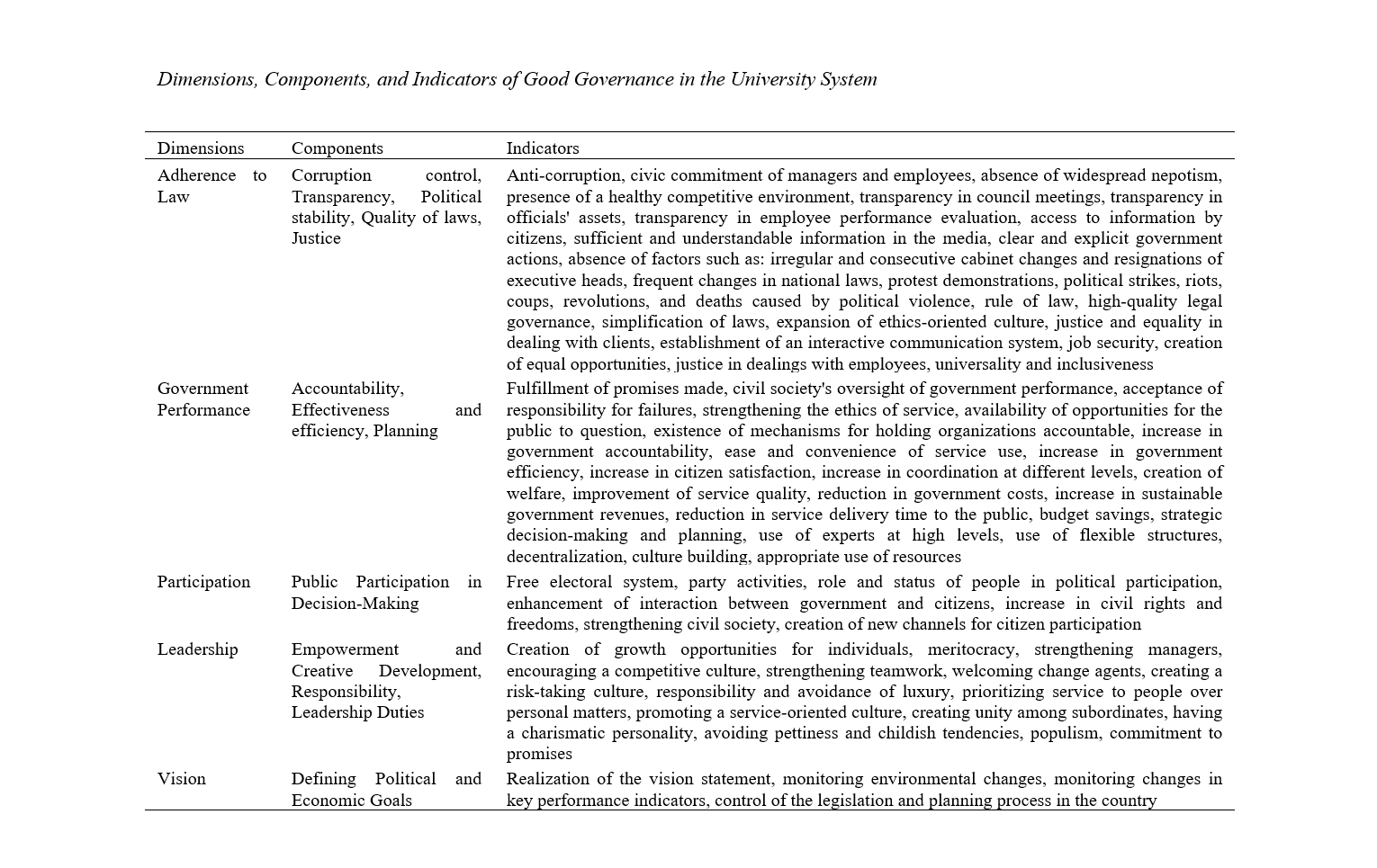Meta-analysis of Good Governance in the University System
Keywords:
Good governance, Transparency, Accountability, Quality of laws, Leadership, University systemAbstract
Objective: The theory of good governance is among the newest topics in development in the contemporary world, and the university system, like other political systems, requires a deep and extensive understanding of the factors, components, and characteristics that make it more efficient and effective. The main goal of this research is to present a model of good governance within the university system.
Methodology: Using a meta-synthesis tool with the seven-step Sandelowski and Barroso method, a systematic evaluation and analysis of 317 instances from past research findings were conducted, which, after the monitoring phases, were narrowed down to 50 relevant articles. At the end, the opinions of 11 experts and university managers were collected through a questionnaire method, and the impact coefficient of the identified factors was determined using Shannon's entropy method based on the content analysis approach.
Findings: According to this research, five main dimensions were identified, including adherence to the law, government performance, participation, leadership, and vision. The adherence to the law dimension includes components (corruption control, transparency, political stability, quality of laws, and justice); the government performance dimension from components (accountability, effectiveness and efficiency, planning); the participation dimension from the component (public participation in decision-making); the leadership dimension from components (empowerment and innovative development, leadership duties, and responsibility); and the vision dimension from the component (determining political and economic goals and ideals). Results showed that the transparency component had the most significant impact among the research components.
Conclusion: Good governance must, in the first place, enact very fair and progressive laws, and all country's institutions and organizations must follow the law and provide the necessary support for adherence to it, and create the necessary conditions for public participation in governance and utilize experts and opinion leaders for vision designing.
Downloads

Downloads
Additional Files
Published
Issue
Section
License
Copyright (c) 2024 Ramesh Niknia, Sakineh Shahi, Mojtaba Jahanifar, Majid Hamdani (Author)

This work is licensed under a Creative Commons Attribution-NonCommercial 4.0 International License.
























